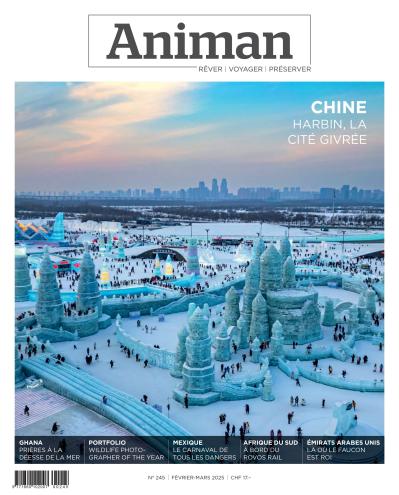![Pedro Lavirgen - EMILIO ARRIETA: MARINA, 1968 Historical live recording, Pedro Lavirgen (2023) [FLAC 24bit/192kHz] Download](https://imghd.xyz/images/2023/07/22/n90cnfbjv3w3b_600.jpg)
Pedro Lavirgen – EMILIO ARRIETA: MARINA, 1968 Historical live recording, Pedro Lavirgen (2023)
FLAC (tracks) 24 bit/192 kHz | Time – 01:43:12 minutes | 3,59 GB | Genre: Classical, Opera
Studio Masters, Official Digital Download | Front Cover | © HD Remastered
Famous Opera Arias—Pedro Lavirgen, tenor Recorded ‘live’ in various unspecified venues, 1967 – 1978.
Aside from a much-circulated live recording of Verdi’s Aida prized by collectors because of a rare performance of the title rôle by Jessye Norman, a near-unknown recording of a thrilling Barcelona performance of Montemezzi’s L’amore dei tre re, a Buenos Aires Vespri siciliani opposite Martina Arroyo, and a few zarzuela recordings never widely available in North America, the career of Spanish tenor Pedro Lavirgen is little documented on records. Born in Córdoba in 1930, Mr. Lavirgen launched his career, as have many Spanish singers, with performances of zarzuela, Spain’s unique género chico, though it was in Emilio Arrieta’s opera Marina that he made his professional début as a singer. In addition to great stars of the genre like Leda Barclay who enjoyed little recognition beyond Spain’s borders, the great zarzuela recordings of the 1950s and 1960s were populated by some of the greatest singers of the 20th Century, recorded at the dawns of their careers: Teresa Berganza, Montserrat Caballé, and Pilar Lorengar, in particular. Among the tenors heard in many zarzuela recordings, there were Mr. Lavirgen and the incomparable Alfredo Kraus. Despite the power of his singing and an especially firm, vibrant upper register, Mr. Lavirgen never enjoyed the opportunities in the recording studio that benefited the careers of his countrymen, among whose ranks Plácido Domingo and José Carreras should also be included. Like sopranos whose recording careers could never take flight in the vacuum created by the dominance of the major record labels by Maria Callas, Renata Tebaldi, and Dame Joan Sutherland, it was Mr. Lavirgen’s lot to sing in a time in which, even in its ‘Golden Age,’ the Classical recording industry could promote and sustain only a limited number of ‘star’ tenors, and del Monaco, Bergonzi, Corelli, and, later, Pavarotti were already the darlings of the opera-buying public. Fortunately, tapes were rolling when Mr. Lavirgen gave some of the finest performances of his career, and sixteen selections from those tapes are here compiled and reintroduced to the public by Madrid-based EMEC Distribución.Mr. Lavirgen made an auspicious entry into the international opera arena with an acclaimed portrayal of Radamès opposite the Aida of Antonietta Stella and the Amonasro of Robert Merrill in Mexico City’s Palacio de Bellas Artes, to which he returned for a still-discussed production of Puccini’s Turandot with Birgit Nilsson in the title rôle and Montserrat Caballé as Liù. His sole performance at the Metropolitan Opera was as Cavaradossi in Puccini’s Tosca in 1968, but his Wiener Staatsoper début as Canio in Leoncavallo’s Pagliacci inaugurated a long and successful tenure with that house. His Don José introduced him to audiences at London’s Royal Opera House in 1975, when his Carmen was Ruza Baldani, and he returned to Covent Garden three years later to sing Pollione to Caballé’s Norma. From the time of his 1964 début there in Carmen, Barcelona’s Gran Teatre del Liceu was Mr. Lavirgen’s artistic home: his appearances in twenty seasons at the Liceu convey something of the esteem in which he was held. Statistics of a singer’s career are enlightening, but it is the voice that is the proverbial proof of the pudding. The voice heard in these recordings, made between 1967 and 1978, during the best decade of Mr. Lavirgen’s career, is a gloriously full-throated spinto tenor with an exhilarating upper register, the burly machismo of the timbre not reducing the impact of Mr. Lavirgen’s more introverted singing. Though there are inevitable concessions to be made owing to the quality of the recorded sound, which has been remastered by Sean Murray with obvious concern for preserving an accurate reproduction of the voice’s timbre, it is wonderful that the selections on this disc were recorded in performance: hearing Mr. Lavirgen’s voice more or less as it sounded to audiences in the theatres in which he sang, the listener gains an ever deeper appreciation of the travesty of this singer’s recordings being so few.
Tracklist:
1-1. Pedro Lavirgen – Preludio, Coro de Pescadores, Barcarola, Romanza (1968 Valencia Historical Live Recording) (15:20)
1-2. Pedro Lavirgen – Ese capitán, dúo. (1968 Valencia Historical Live Recording) (04:00)
1-3. Pedro Lavirgen – Barco a la vista (1968 Valencia Historical Live Recording) (02:02)
1-4. Pedro Lavirgen – Coro de pescadores , Aria (1968 Valencia Historical Live Recording) (06:59)
1-5. Pedro Lavirgen – Cuarteto, Alma mía (1968 Valencia Historical Live Recording) (02:54)
1-6. Pedro Lavirgen – Concertante (1968 Valencia Historical Live Recording) (05:32)
1-7. Pedro Lavirgen – Final Act I (1968 Valencia Historical Live recording) (19:53)
1-8. Pedro Lavirgen – Preludio Act, II (1968 Valencia Historical Live Recording) (04:33)
1-9. Pedro Lavirgen – Brindis (1968 Valencia Historical Live Recording) (11:59)
1-10. Pedro Lavirgen – Seguidillas (1968 Valencia Historical Live Recording) (11:40)
1-11. Pedro Lavirgen – Tango final (1968 Valencia Historical Live Recording) (18:16)
Download from FileJoker:



















![Pedro Lavirgen, Pietro Mascheroni - Leoncavallo: Pagliacci (Remastered 2022) [Live] (2023) [FLAC 24bit/192kHz] Pedro Lavirgen, Pietro Mascheroni - Leoncavallo: Pagliacci (Remastered 2022) [Live] (2023) [FLAC 24bit/192kHz]](https://imghd.xyz/images/2023/07/31/u6bjh8wndm0wa_600.jpg)
![Pedro Lavirgen - VERDI: LA FORZA DEL DESTINO, (Selection), Pedro Lavirgen, Oliviero de Fabritis (2023) [FLAC 24bit/192kHz] Pedro Lavirgen - VERDI: LA FORZA DEL DESTINO, (Selection), Pedro Lavirgen, Oliviero de Fabritis (2023) [FLAC 24bit/192kHz]](https://imghd.xyz/images/2023/08/30/a6n512rez22jb_600.jpg)
![Pedro Lavirgen - Donizetti: Lucia di Lammermoor. (2023) [FLAC 24bit/192kHz] Pedro Lavirgen - Donizetti: Lucia di Lammermoor. (2023) [FLAC 24bit/192kHz]](https://imghd.xyz/images/2023/08/30/xdb6ft3ni0yqb_600.jpg)
![Pedro Lavirgen - Donizetti: Lucia di Lammermoor, A. 46 (Remastered 2023) (2023) [FLAC 24bit/192kHz] Pedro Lavirgen - Donizetti: Lucia di Lammermoor, A. 46 (Remastered 2023) (2023) [FLAC 24bit/192kHz]](https://imghd.xyz/images/2023/08/30/du60ogap1i3tb_600.jpg)
![Richard Bonynge, Dame Joan Sutherland, Pedro Lavirgen - Bellini: Norma (Excerpts) [Remastered 2022] [Live] (2023) [FLAC 24bit/192kHz] Richard Bonynge, Dame Joan Sutherland, Pedro Lavirgen - Bellini: Norma (Excerpts) [Remastered 2022] [Live] (2023) [FLAC 24bit/192kHz]](https://imghd.xyz/images/2023/02/17/sjvr7t3eojclb_600.jpg)
![Pedro Lavirgen, Ángeles Gulin, Rafael Fübrek - Manuel de Falla: La Vida Breve (2023) [FLAC 24bit/192kHz] Pedro Lavirgen, Ángeles Gulin, Rafael Fübrek - Manuel de Falla: La Vida Breve (2023) [FLAC 24bit/192kHz]](https://imghd.xyz/images/2025/01/24/en15yy2hx6rma_600.jpg)
![Fiorenza Cossotto, Pedro Lavirgen - Bizet: Carmen, WD 31 (Excerpts) [Remastered 2022] [Live] (2023) [FLAC 24bit/192kHz] Fiorenza Cossotto, Pedro Lavirgen - Bizet: Carmen, WD 31 (Excerpts) [Remastered 2022] [Live] (2023) [FLAC 24bit/192kHz]](https://imghd.xyz/images/2023/02/13/pjogqhxfb7wwa_600.jpg)